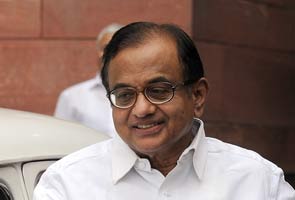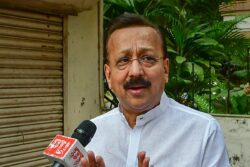2G scam: No evidence against Chidambaram, says Supreme Court

New Delhi: The Supreme Court has dismissed two petitions against P Chidambaram asking for him to be investigated by the CBI in the telecom scam and to be made co-accused along with former Telecom Minister A Raja.
 The verdict offers significant relief for the Finance Minister, whose resignation has been demanded by the main opposition party, the BJP, in the 2G scam, described as India’s biggest swindle. “The BJP has wasted the court’s time,” said senior minister Ambika Soni. She said that the opposition has been dealt “blow after blow” in its attempts to indict Mr Chidambaram. But the minister “remains politically and constitutionally accountable,” said the opposition’s Ravi Shankar Prasad.
The verdict offers significant relief for the Finance Minister, whose resignation has been demanded by the main opposition party, the BJP, in the 2G scam, described as India’s biggest swindle. “The BJP has wasted the court’s time,” said senior minister Ambika Soni. She said that the opposition has been dealt “blow after blow” in its attempts to indict Mr Chidambaram. But the minister “remains politically and constitutionally accountable,” said the opposition’s Ravi Shankar Prasad.
The cases against Mr Chidambaram had been filed by Janata Party President Subramanian Swamy and lawyer-activist Prashant Bhushan; they wanted the minister’s role in the telecom scam to be studied by the CBI, and for him to be prosecuted. The CBI has repeatedly said there is no evidence to merit an inquiry against the minister in the allocation of mobile network licenses and spectrum in 2008, when A Raja was Telecom Minister. The Supreme Court has said that it has been given no evidence that there was a criminal conspiracy between Mr Chidambaram and Mr Raja, or that the Finance Minister abused his office. “Poor management in allocation of spectrum cannot be said to be the product of criminal conspiracy,” the judges said.
They also said that there was no evidence that Mr Chidambaram benefitted financially from any aspect of the scam.
Mr Swamy has said he will seek a review of today’s judgement. “I will get the judgement copy and seek a review. This judgement is based on something I did not argue. It says I haven’t given evidence of conspiracy, but I have only argued that Chidambaram caused loss to the exchequer,” he said.
In 2008, Mr Chidambaram was Finance Minister when then Telecom Minister A Raja allegedly broke the rules to help companies who were ineligible land valuable mobile network licenses at throwaway prices. They were not charged separately for the second-generation or 2G airwaves they would use. Mr Raja ignored advice to conduct an auction for the licenses; he said he would follow a first-come-first-serve policy, but was later jailed for allegedly pushing companies to the head of the line in return for kickbacks. Mr Raja has said in his trial that he kept Mr Chidambaram and the PM informed of all his decisions.
The national auditor has said the telecom scam was worth Rs. 1.76 lakh crore, giving it star billing on a list of scandals that have engulfed the ruling UPA coalition. In February, the Supreme Court cancelled 122 of the licenses given by Mr Raja.
That has allowed the BJP to accuse Mr Chidambaram of dereliction of duty, and the Prime Minister of being permissive of corruption within his cabinet. In the Winter Session of Parliament, the BJP announced a “boycott” of Mr Chidambaram, preventing him from speaking in the House by drowning him out with shouts.
Earlier this week, the BJP walked out of a parliamentary committee studying the telecom scam; its members said that the PM and Mr Chidambaram must be summoned and questioned by the panel. Without their deposition, the BJP said, the committee’s attempts to fix accountability for the scam amounted to a charade.
In February this year, a CBI court in Delhi rejected Mr Swamy’s request to try Mr Chidambaram for his alleged role in the telecom scam. Mr Swamy then challenged the verdict in the Supreme Court. In his appeal, he said that Mr Chidambaram was as culpable as Mr Raja for the losses caused by the 2G swindle because he was involved in deciding the price of spectrum, and in permitting two companies who received licenses to dilute equity by bringing foreign partners on board, making huge profits virtually overnight.
Mr Swamy said that there was evidence to show that as Finance Minister, Mr Chidambaram’s actions merited his prosecution under the Prevention of Corruption Act and other criminal laws.





